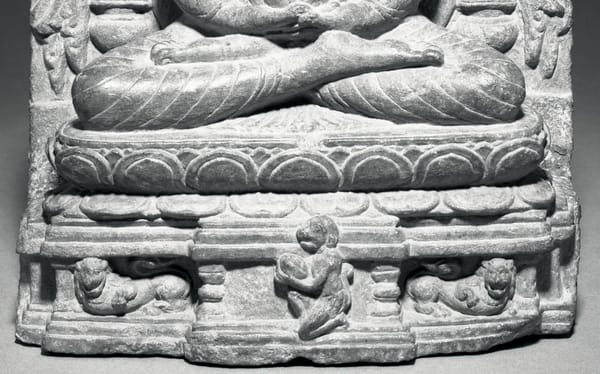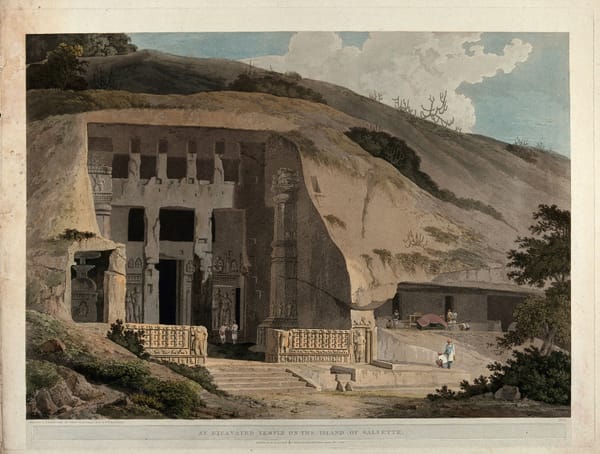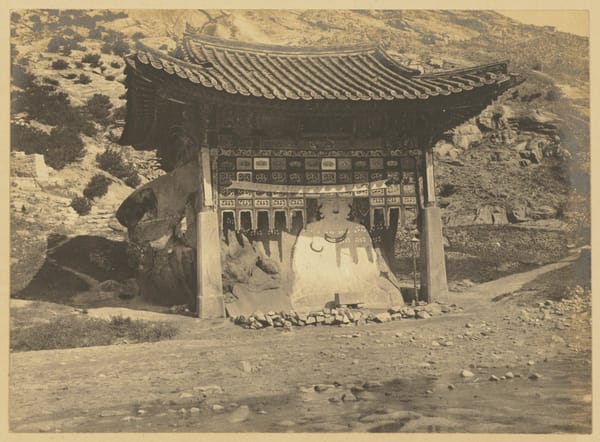A Tibetan Refugee Visits an American-Tibetan Buddhist Monastery
I pass by a Tibetan monastery every time I am on the shuttle to my liberal arts college from my apartment offcampus. I never thought of visiting it because monasteries have never been places that are meaningful independently. They are places where I have formed a lot of beautiful memories and they have also been places where I felt trapped by ritualistic handshakes, bows, smiles, and other social formalities. As a child in Nepal, I played games there, and as an adult in America, I sit next to the popular gossips and listen to my mom reminisce about refugee life with them. Going to a monastery means that my mom and I pull out our best chubas, Tibetan dresses, and sit down with other beautifully dressed women and speak in Tibetan. We remind ourselves that we are indeed Tibetan and not the Americans we are most of our lives. Between gossips and snacks that are spread before us on the floor, we would listen to our teacher and marvel at his wisdom and rhetoric. After which, we would all get up and fight for a spot on a line to receive blessings.
So, when a friend told me that she had had a spiritual revelation, had developed a sensitivity to the plight of the world, was in need of spiritual guidance that would allow her to make sense of her newly found awareness, and that she had found that guidance in a Tibetan monastery, I had some issues. My friend was using the Tibetan monastery in a way that I had never conceived of before. The way she went on about this Tibetan monastery; in an instant, she made all that felt familiar to me, my childhood memories at the gompa, feel foreign.
I had sat with the White Buddhists for at least thirty minutes. It was a frustrating experience. I sat in silence watching the gross fetishization of Tibetan Buddhism. I told my friend I couldn’t watch the head lama doze, bored by the dullness of the affair that he had legitimized and sanctioned, any longer. As far as I was concerned at the time, that space had nothing to offer to me. It was not going to satiate my need to be among my people. It was so simplistic in its understanding of Tibetanness, so naive and thoughtless, it was insulting.
I thought about how different my dynamic with Sonam was compared to the one she had with the White women. I thought about my memories and how much they conflicted with what I had experience at the monastery. There is a Buddhist monks who visits our college every two years to build a sand mandala. During his visit, he usually makes time to give a talk on Buddhist philosophy. He stressed to his audience the importance of the heart and how its presence is lacking in the modern world that is preoccupied with developing the mind. During his talk he essentialized Tibetan Buddhism into compassion and the practice of Buddhism to be nothing more than a strong focus on the development of the heart alongside the mind. After his talk, I had a lengthy conversation with him where we mostly exchanged jokes. When I asked him about his talk, he responded with “you kind of have to say that.”
It is a phrase that Tibetans often use when they are in a foreign space, where they believe they are expected to say certain things. He knew his audience and knew what they expected from him. He also knows the educational tradition that he is entering and is mindful not to disturb it. It is a source of his livelihood and has proved itself to be relatively lucrative. The purpose of this paragraph is not to accuse him of being a liar. I don’t think he is lying. It is true that the way he speaks to me is different from the way he speaks to English speakers and I noticed the same behavior from Sonam, the wife of Rinpoche Kunzang at KPL. However, I don’t think he believes that he is proselytizing because the sort of Buddhism that he is speaking of is not the same as the one he practices. It is a Buddhism that has been designed specifically for the West and it is one that is aware not to disturb Western sensibilities. It is not the Buddhism he knows.
Consumerist Buddhist | Guestpost by Kunsang Palmo | lhakardiaries.com



